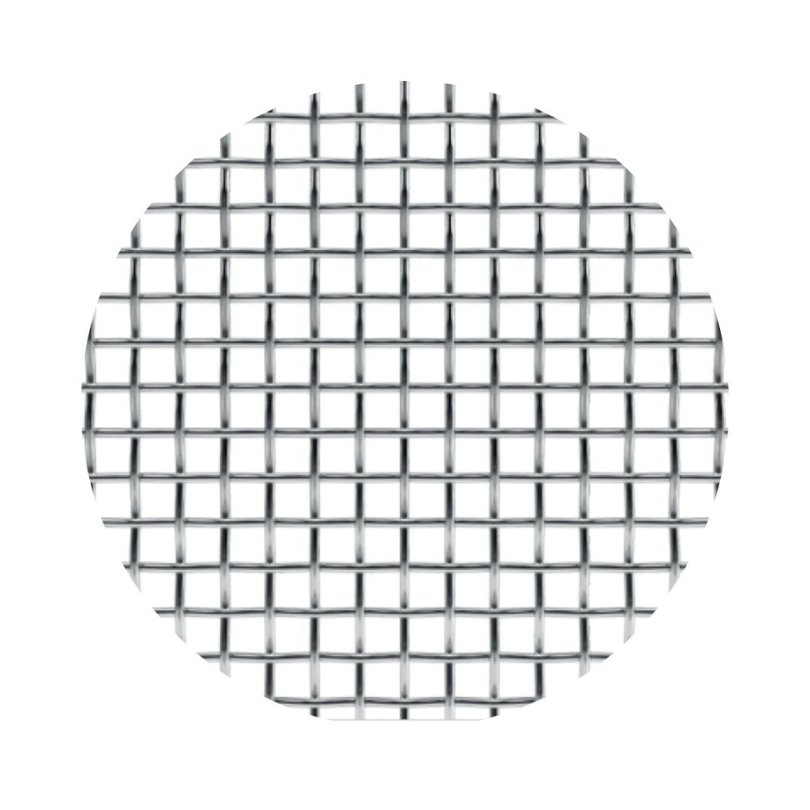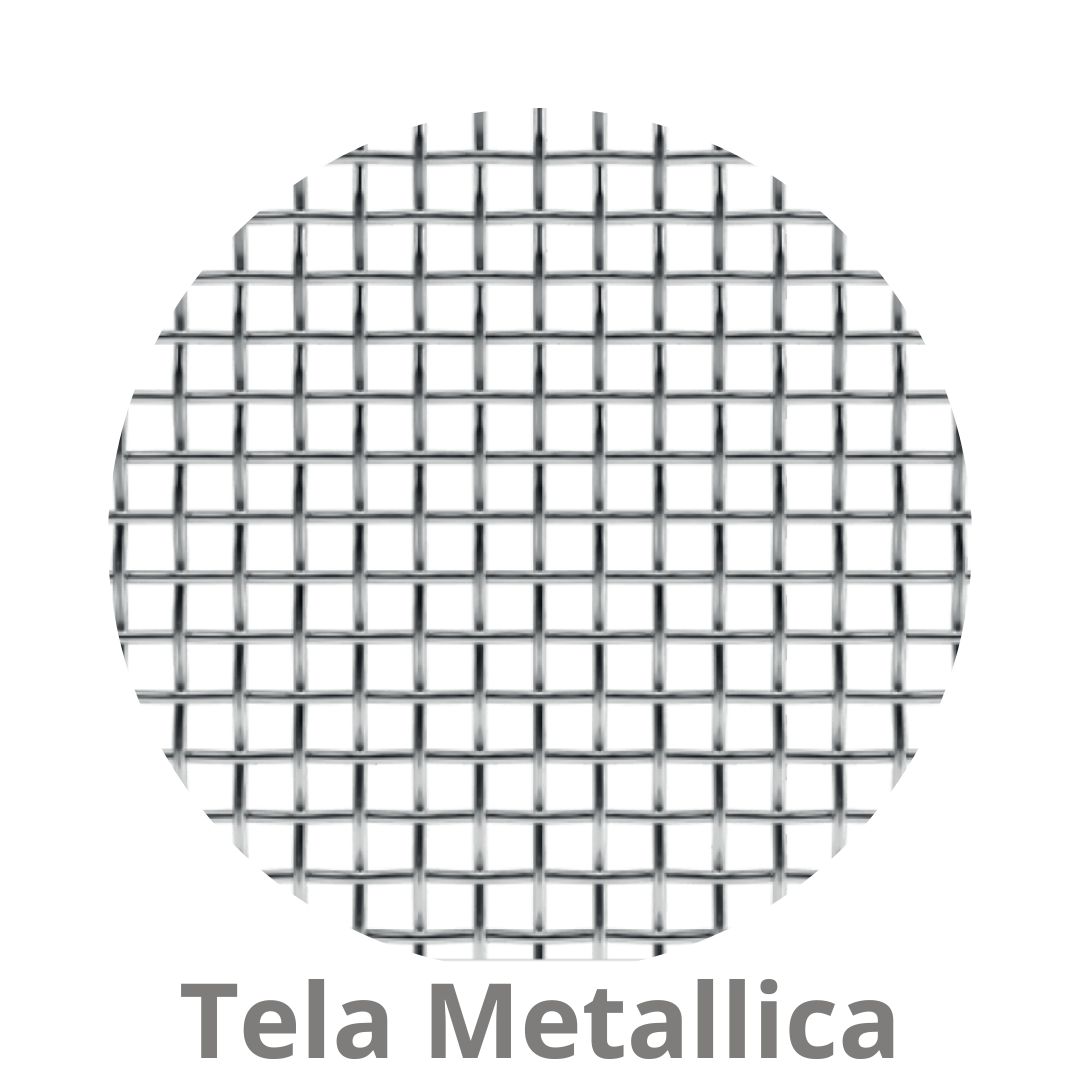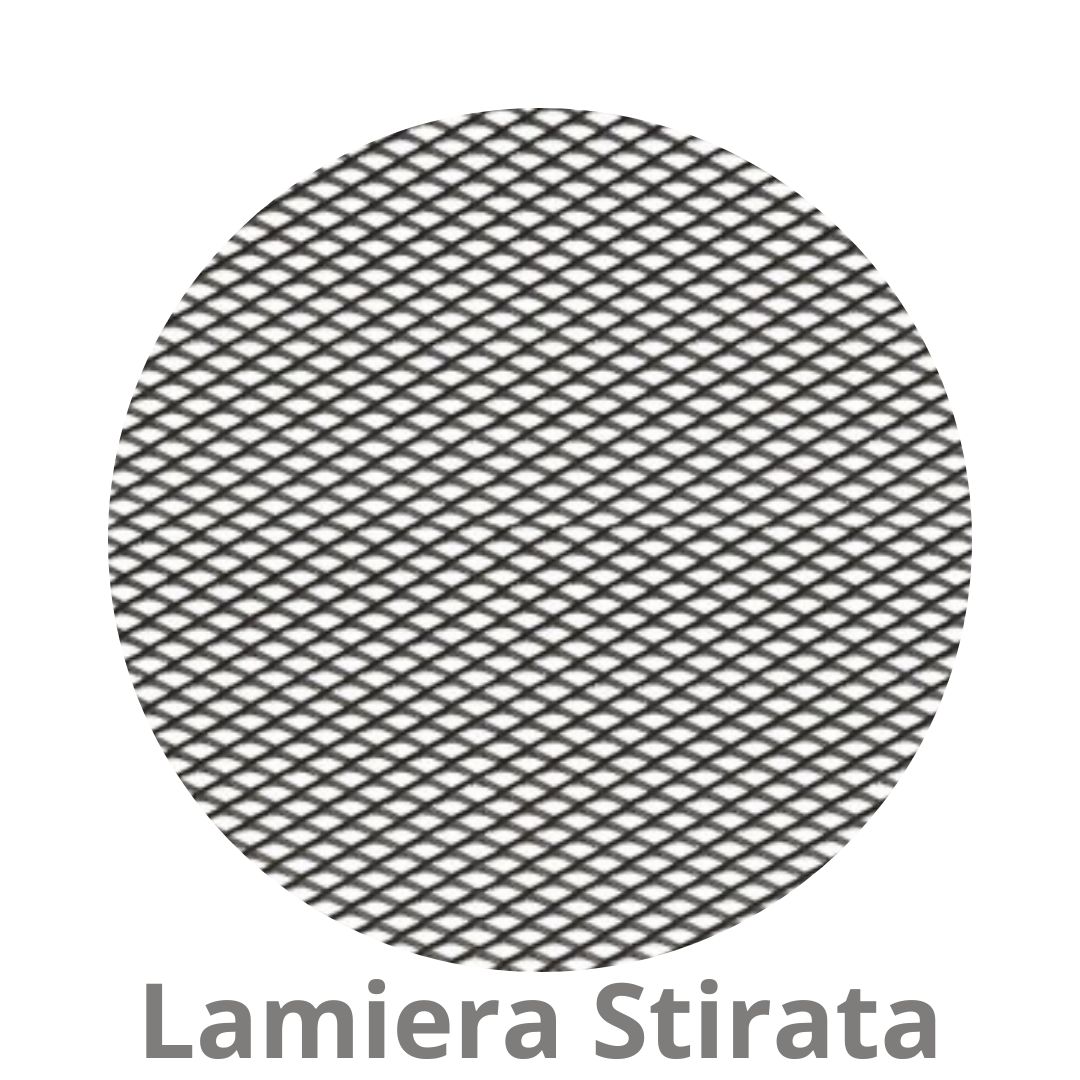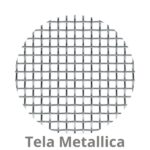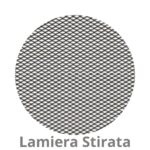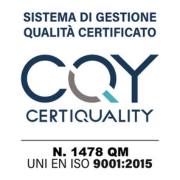Stainless Steel Cloth/Sheet Disc Filters
Stainless Steel Mesh/Sheet Disc Filters are made of AISI 304/316 stainless steel by Sinterfiltri. They offer a reliable and customized solution for a wide range of industrial applications. Thanks to their unique characteristics, they ensure efficient filtration and long life.
Main Features:
Porosity: 15 to 2,000 microns
Mesh count: 1.5 to 26,000/cm2
Wire diameter: 0.04 to 2 mm
Filtration: 10 to 150 microns for mesh
Filtration: 300 to 2,000 microns for expanded metal.
- Resistant to fresh and salt water, saline solutions, sulfates, nitric acid, and phosphoric acid
- Resistant to thermal shock
- Resistant to high temperatures (up to approximately 500°C)
- Good mechanical strength
Sinterfiltri produces filters based on customer-specific designs. Experience, knowledge of materials, and manufacturing technologies are combined to design filters to meet your specific needs. FIND OUT if the filter is already manufactured in the "CATALOGUE" range. If you don't find the size you need, write to info@sinterfiltri.com to have the filter best suited to your needs made.
BRIEF DESCRIPTION:
When we talk about "clearance" in the context of wire mesh filtration, we are referring to the size of the openings or holes in the mesh. It is a fundamental characteristic that determines the size of particles that can pass through the filter and those that are retained.
- Wide clearance: If the holes are large, larger particles will be able to pass through the filter. This is useful when coarse filtration or a high liquid/gas flow rate is desired.
- Narrow clearance: If the holes are small, only very fine particles will be able to pass through the mesh, ensuring more precise filtration and the removal of smaller impurities.
"Clearance" is often expressed in different units of measurement, depending on the standards and manufacturer's specifications. Some of the most common include:
- Micron (µm): Indicates the actual size of the opening in micrometers (millionths of a meter).
- Mesh: Indicates the number of threads per linear inch (25.4 mm). A higher mesh number means smaller holes and therefore a smaller gap. The relationship between mesh and aperture size is non-linear and also depends on the diameter of the thread used to weave the canvas.
- Millimeters (mm): In some cases, especially for canvases with larger apertures, the span can be expressed directly in millimeters.
A large span generally implies the use of thinner threads.
- Maximize the passage area: The goal of a large span is to allow the passage of larger particles and/or ensure a high flow rate of the fluid or gas. To achieve large apertures, thinner threads should be used. Thicker threads would take up more space in the weave, reducing the effective size of the holes.
- Ratio between gap and thread: Imagine a grid. If you want the "holes" (the gap) to be large, you need to use thinner "bars" (the threads). If the bars were thicker, the holes would be smaller, even if the distance between the bars were the same.
This is not an absolute rule, and the final choice depends on a balance of different requirements of the filtration application, mechanical resistance, type of filtered material, and weaving process.
You can sort the list and perform a search by filling in the appropriate filter fields. NB: Thread unit of measurement expressed in mm - Gap expressed in Microns.
Dischi Tela Lamiera Metallica
Description
Sinterfiltri manufactures and sells AISI 304 and AISI 316 stainless steel wire mesh and sheet metal filters. These high-quality filtration devices are designed to ensure reliable performance and long life in a variety of industrial applications. Here are the main features of these filters:
They are made by intertwining metal wires that create a filtering surface made of small meshes. This structure retains solid particles while allowing fluid or gas to pass across the filter surface. Thanks to this configuration, disc filters are effective for a wide range of industrial applications requiring particle separation from a fluid or gas. They are commonly used in industries such as the food, chemical, pharmaceutical, and many others. Their structure allows for easy cleaning and maintenance, ensuring consistent performance over time.
They are obtained through a cold deformation process of sheet metal. This process allows for the creation of regular openings of various shapes, such as rhomboids, squares, and rounds, with specific dimensions. The expanded metal is subjected to a deformation process without heating, which means it maintains its structural properties while the holes are created. These filters are widely used in a wide range of industrial applications for the separation of
AISI 304/316 Stainless Steel:
- Corrosion Resistance: Both AISI 304 and AISI 316 alloys offer excellent levels of corrosion resistance. AISI 316, thanks to the presence of molybdenum, offers greater resistance in more aggressive or chloride-containing environments.
- High Temperature Resistance: Both alloys have good resistance to high temperatures, making them suitable for applications in thermally demanding environments.
- Strength and Durability: AISI 304 and 316 stainless steels are known for their mechanical strength and durability, ensuring that filters maintain their performance even under intensive use.
- Machinability and Weldability: They are easily machinable and can be welded, allowing for greater flexibility in design and installation.
Disc Structure:
- Design Flexibility: Disc filters are available in a wide range of sizes, thicknesses, and shapes to suit specific filtration needs.
- Easy Maintenance: The The disc structure simplifies filter maintenance and cleaning, helping to ensure consistent performance over time.
Application Areas:
- Food and Beverage Industry: Sinterfiltri stainless steel disc filters are ideal for separating solid particles from liquids or gases in food and beverage production processes.
- Chemical and Pharmaceutical Industry: They are used in environments that require maximum purity and efficient separation of particles from fluids and gases.
- Petrochemical and Energy Industry: They are used in the production and treatment processes of fluids such as oils and fuels, helping to avoid contamination.
- Water and Wastewater Industry: They are used to remove sediment and impurities from water in treatment and purification plants.
- Aerospace and Defense Industry: They are used in applications that require reliable filtration in critical environments such as those in the aerospace and defense industry.
- Electronics and Semiconductor Manufacturing: They are used to maintain extremely clean production environments, essential for the production of electronic components.
- Automotive: They are used in lubrication systems and cooling circuits, where ensuring fluid cleanliness is essential.
Sinterfiltri's wire mesh and expanded metal bushing filters offer a reliable and customized solution for a wide range of industrial applications. Thanks to their unique characteristics, they are able to guarantee efficient filtration and a long life.
Request info
Custom filters
If you don't find the filter with the dimensions, particle size, or features you need in the catalog, please contact us at
info@sinterfiltri.com
or fill out the information request form to request a feasibility study and quote.

